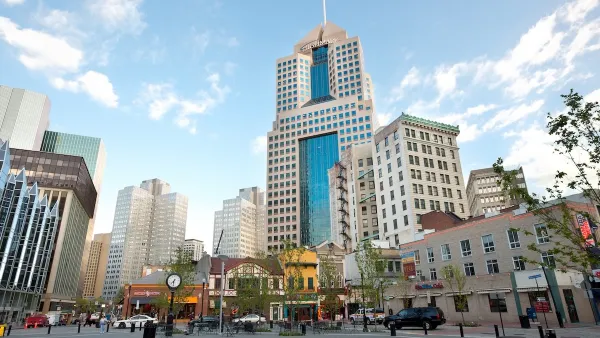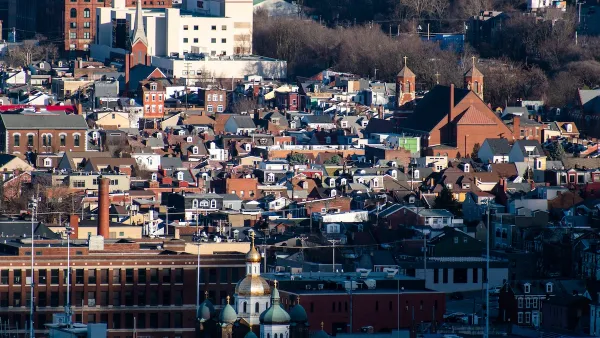A new study for Pittsburgh says that the city could save $1 million a year in energy costs and $700,000 in maintenance if they make the switch to LEDs.
The study was conducted by Pitt's Mascaro Center for Sustainable Innovation, and is titled, "Life Cycle Assessment of Streetlight Technologies." While there is still more environmental impact from the manufacture of LEDs than sodium lamps, the report says that the energy savings far outweigh the damage.
Reporter David Templeton writes, "Currently 90 percent of the nation's lighting is high-pressure sodium, including most of Pittsburgh's streetlights. Only 1 percent of the nation's streetlights are LED lighting, the study says."
FULL STORY: Pitt study: City should install LED streetlights

Analysis: Cybertruck Fatality Rate Far Exceeds That of Ford Pinto
The Tesla Cybertruck was recalled seven times last year.

National Parks Layoffs Will Cause Communities to Lose Billions
Thousands of essential park workers were laid off this week, just before the busy spring break season.

Retro-silient?: America’s First “Eco-burb,” The Woodlands Turns 50
A master-planned community north of Houston offers lessons on green infrastructure and resilient design, but falls short of its founder’s lofty affordability and walkability goals.

Test News Post 1
This is a summary

Analysis: Cybertruck Fatality Rate Far Exceeds That of Ford Pinto
The Tesla Cybertruck was recalled seven times last year.

Test News Headline 46
Test for the image on the front page.
Urban Design for Planners 1: Software Tools
This six-course series explores essential urban design concepts using open source software and equips planners with the tools they need to participate fully in the urban design process.
Planning for Universal Design
Learn the tools for implementing Universal Design in planning regulations.
EMC Planning Group, Inc.
Planetizen
Planetizen
Mpact (formerly Rail~Volution)
Great Falls Development Authority, Inc.
HUDs Office of Policy Development and Research
NYU Wagner Graduate School of Public Service




























